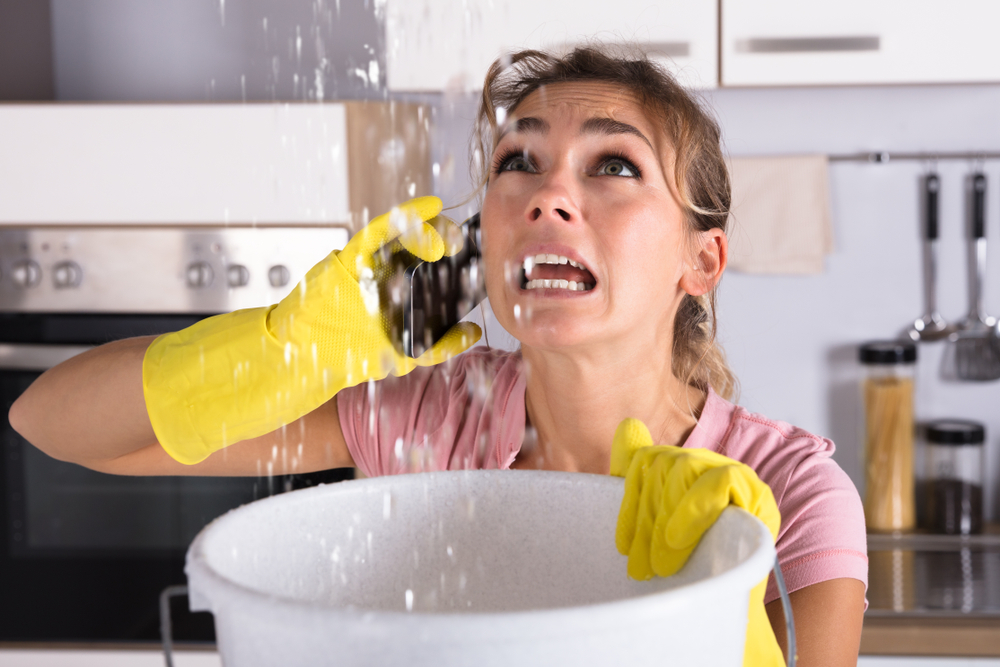What type of water damage is covered by my home insurance?

While water may seem harmless in most circumstances, particularly at low volume, if it manages to get into your carpet, drywall, or basement it can do massive and expensive damage. If you are wondering if homeowners insurance covers water damage, you are not alone and in most cases, the answer is yes but there are exceptions.
Following is a quick overview of what type of water damage is covered by insurance and which damage is excluded.
Is Water Damage Covered by Insurance?
Flood damage is always excluded from homeowners coverage but many other types of water damage are typically covered. Water damage caused by rain as well as sudden or accidental events inside your home is usually covered by your homeowners policy. In addition, water damage that is caused by a windstorm or tornado is usually covered as well. Here are some common scenarios that would typically be covered:
- Rain: If a major storm damages your roof and your home is damaged due to rain getting in, your homeowners policy should step up to cover the damage. Wind damage that results in flooding or rain getting into your home will usually be covered as well.
- Burst Pipes: Frozen pipes that burst or simply leaking pipes can do massive damage behind the walls before the leak is detected. Luckily, homeowners insurance will cover the damage to your walls, carpet and even personal property that is damaged or destroyed by water damage
It should be noted if a leak goes on long term and you don’t get it fixed, your insurer may deny your claim. It is your responsibility to make sure leaks or burst pipes are fixed in a timely manner.
- Mold: If your home develops mold due to a burst pipe or leak, the damage and mold removal may be covered. However, if mold has developed due to negligence or you not performing routine maintenance on your home, the damage may not be covered.
- Appliance Malfunctions: A washing machine or water heater can break and flood the surrounding area. In most cases, the water damage caused by these types of malfunctions will be covered. It will not cover the cost of repairing or replacing the appliance, you will need to cover that cost out of pocket.
- Ice Dams: If an ice damage develops on your roof, it can cause damage to both the roof and your interior walls via water leaks. in many cases your homeowners insurance will cover ice damn damage.
Water Damage Not Covered by Insurance
While homeowners insurance will cover many types of water damage, there are certain types of water damage that are excluded from most standard homeowner insurance policies. Here are the most common types of excluded water damage:
- Flooding: In almost all cases flood damage is excluded from a standard homeowner’s insurance policy. If your home is located in a flood prone area you will need to carry a separate flood insurance policy to fully protect your home.
- Sewer Backups: Most homeowner insurance policies exclude water damage that is caused by sump pump failures or sewer backups. However, in most cases you can purchase additional coverage or a rider to cover this type of damage. Most experts recommend adding this coverage to your policy as sewer leaks can be very expensive to repair.
- Homeowner Negligence: If damage is caused due to homeowner negligence or lack of routine maintenance your insurance company may very well deny any claims. It is the homeowner’s responsibility to maintain the home and repair any damaged pipes or leaks quickly so that it doesn’t cause further damage. If you fail to do this your insurer may deny your claim.
How to Prevent Water Damage
While it is not always possible to prevent water damage there are some things you can do to help minimize water damage to both your home and your personal belongings. here are a few tips to help prevent water damage in your home:
Inspect your home regularly: You should regularly check your roof for shingle damage and if you find damage it should be repaired in a timely manner. if you are uncomfortable checking the roof hire a professional.
Clogged gutters: Clean your gutters on a regular basis as clogged gutters tend to result in ice dams and pooling water. This can cause damage to your roof and lead to leaks inside your walls.
Waterproof your basement: Always repair or seal cracks in your basement when they appear. This will help prevent water leaking into your basement during heavy rainstorms.
Find main water shut off: Always know where the main water shutoff is in your home. This can be very useful in the event of a pipe breaking or a water leak, it is important to turn off the water supply as soon as possible so if you know where it is you can deal with the leak quickly.
